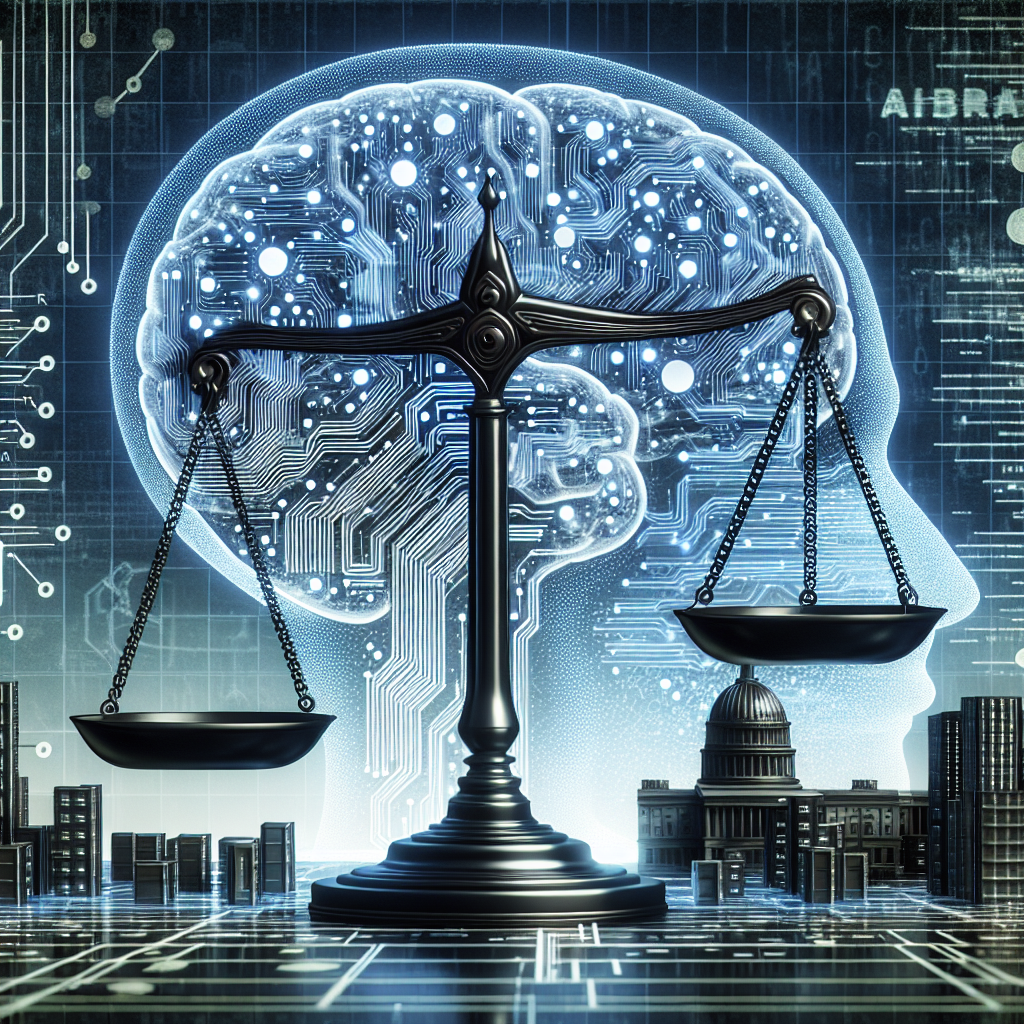As artificial intelligence (AI) continues to advance and become more integrated into various aspects of society, including government operations, questions about ethics and accountability have become more important than ever. While AI has the potential to revolutionize government services and improve efficiency, it also raises concerns about bias, privacy, and the potential for misuse. In order to ensure that AI is used ethically and responsibly in government settings, it is critical to establish clear guidelines and regulations that prioritize accountability and transparency.
Accountability in AI refers to the responsibility that individuals and organizations have for the decisions made by AI systems. This includes ensuring that AI systems are designed and deployed in a way that minimizes harm and maximizes benefits for society. Transparency, on the other hand, refers to the idea that the decisions made by AI systems should be explainable and understandable to those affected by them. This is crucial for building trust in AI systems and ensuring that they are used in a fair and equitable manner.
There are several key principles that can help guide the development and deployment of AI in government settings to ensure accountability and transparency. These principles include fairness, privacy, security, and explainability. Fairness refers to the idea that AI systems should be designed and deployed in a way that does not discriminate against any individuals or groups. This includes ensuring that the data used to train AI systems is representative of the population as a whole and that biases are minimized.
Privacy is another important consideration when it comes to AI in government. Government agencies have access to a wealth of sensitive data about individuals, and it is important that this data is protected and used in a responsible manner. This includes ensuring that AI systems are designed to minimize the collection and retention of personal data and that appropriate safeguards are in place to protect against unauthorized access.
Security is also a critical consideration when it comes to AI in government. AI systems can be vulnerable to cyberattacks and other security threats, so it is important to ensure that robust security measures are in place to protect against these risks. This includes encrypting data, implementing access controls, and regularly monitoring and updating AI systems to address any vulnerabilities.
Finally, explainability is essential for ensuring accountability and transparency in AI systems. Government agencies must be able to explain how AI systems make decisions and provide a clear rationale for those decisions. This helps to build trust in AI systems and allows individuals to understand and challenge decisions that affect them.
In order to ensure that AI is used ethically and responsibly in government settings, it is important to establish clear guidelines and regulations that prioritize accountability and transparency. This includes developing codes of conduct for AI developers and users, conducting regular audits of AI systems to identify and address biases, and providing training and education on AI ethics for government employees.
Frequently Asked Questions
Q: What are some examples of AI being used in government settings?
A: AI is being used in a variety of ways in government settings, including in healthcare, law enforcement, transportation, and education. For example, AI is being used to analyze healthcare data to improve patient outcomes, to predict and prevent crime in law enforcement, to optimize traffic flow in transportation systems, and to personalize learning experiences for students in education.
Q: How can government agencies ensure that AI systems are accountable and transparent?
A: Government agencies can ensure that AI systems are accountable and transparent by following best practices for AI development and deployment, such as using representative and unbiased data, implementing robust security measures, and providing explanations for AI decisions. They can also conduct regular audits of AI systems to identify and address biases, and provide training and education on AI ethics for employees.
Q: What are some potential risks of using AI in government settings?
A: Some potential risks of using AI in government settings include bias in AI systems, privacy concerns related to the collection and use of personal data, security vulnerabilities that could be exploited by malicious actors, and the potential for AI systems to make decisions that are not explainable or understandable to those affected by them. It is important for government agencies to address these risks through careful planning and oversight of AI systems.
Q: How can individuals and organizations hold government agencies accountable for the use of AI?
A: Individuals and organizations can hold government agencies accountable for the use of AI by advocating for transparency and accountability in AI systems, by requesting explanations for AI decisions that affect them, and by challenging decisions that appear to be biased or unfair. They can also work with government agencies to develop codes of conduct for AI developers and users, and to establish mechanisms for auditing and monitoring AI systems.
Overall, the use of AI in government settings has the potential to improve efficiency and effectiveness, but it also raises important ethical considerations. By prioritizing accountability and transparency in the development and deployment of AI systems, government agencies can ensure that AI is used in a responsible and ethical manner that benefits society as a whole.

